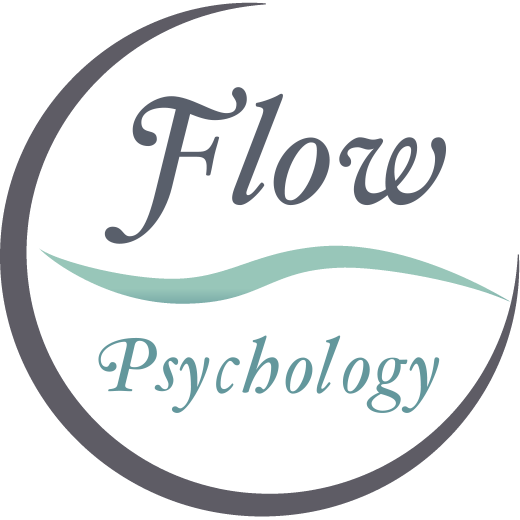
Here in my Cognitive behaviour therapy clinic in Dublin, I hear this come up a lot, especially during the summer and holidays. It is an important topic for me and my clients as we only get one life and to be in the moment and savouring your time off is very important. Creating amazing memories is such an important part of that life, First I always ask what is the outcome of the holiday, and always have the end in my mind. This will give you more clarity on what you want from your time off.
Free time holiday anxiety is a phenomenon that affects many people and can have a negative impact on their mental health. It is characterized by feelings of guilt, stress, and restlessness during leisure time, which can prevent individuals from fully enjoying their free time. This type of anxiety can be caused by a variety of factors, including work-related stress, social pressure, and the fear of missing out.
Fortunately, there are several ways to reduce free time anxiety and improve one’s overall well-being. One effective strategy is to practice mindfulness, which involves focusing on the present moment and letting go of distracting thoughts and worries. Another helpful approach is to set realistic expectations for oneself and prioritize self-care activities, such as exercise, hobbies, and relaxation techniques. Additionally, seeking support from friends, family, or a mental health professional can be beneficial in managing free time anxiety.
Understanding Free Time Anxiety
Free time anxiety is a type of anxiety that occurs when an individual feels overwhelmed or stressed during their leisure time. This feeling of anxiety can be triggered by a variety of factors, including work-related stress, worry about future events or an underlying anxiety disorder.
Symptoms of free time anxiety can vary from person to person but may include increased heart rate, panic attacks, restlessness, irritability, headaches, sweating, and feelings of helplessness or doom. These symptoms can be physically and emotionally draining, making it difficult for an individual to enjoy their free time.
There are several factors that can contribute to free time anxiety, including a busy work schedule, lack of sleep, medication side effects, and unhealthy habits such as smoking or excessive caffeine or alcohol consumption. Additionally, certain triggers such as social situations or feelings of being overwhelmed can exacerbate free time anxiety.
To reduce free time anxiety, there are several coping strategies that can be effective. These include deep breathing exercises, journaling, reading, and engaging in physical activity. Creating a schedule and planning ahead can also help to alleviate feelings of overwhelm and burnout.
In more severe cases, professional help may be necessary. Cognitive behavioural therapy (CBT) is a common treatment option that can teach individuals how to manage their anxious thoughts and behaviours. Medications such as antidepressants or sedatives may also be prescribed by a nurse practitioner or mental health provider.
Overall, understanding the causes and symptoms of free time anxiety is an important step in reducing its impact on an individual’s mental health and quality of life. By implementing healthy habits and coping strategies, individuals can learn to manage their anxiety and enjoy their leisure time without feeling overwhelmed or stressed.
Causes of Free Time Anxiety
Free time anxiety is a type of anxiety that occurs when a person has unstructured time with no specific tasks or activities to do. Some of the causes of free time anxiety are:
Lack of Control
People who have free time anxiety may feel like they have no control over their lives. They may feel like they have too much free time and do not know how to use it effectively. This lack of control can lead to feelings of anxiety and stress.
Fear of Missing Out
Some people may experience free time anxiety because they are afraid of missing out on something important. They may feel like they should be doing something productive or fun with their free time, and if they are not, they are missing out on valuable experiences.
Perfectionism
People who are perfectionists may experience free time anxiety because they feel like they should always be doing something productive or improving themselves. They may feel like they are wasting time if they are not doing something that is helping them achieve their goals.
Underlying Disorders
Free time anxiety can also be a symptom of an underlying disorder, such as generalized anxiety disorder or obsessive-compulsive disorder. In these cases, the anxiety is not necessarily caused by the free time itself, but rather by the person’s underlying mental health condition.
Overall, free time anxiety can be caused by a variety of factors, including a lack of control, fear of missing out, perfectionism, and underlying mental health conditions. It is important to address these underlying causes in order to effectively reduce free time anxiety. This can be done through various methods, including behavioural therapy, mindfulness, and psychotherapy with a trained therapist.
Ways to Reduce Free Time Anxiety
Physical Activities
Physical activities such as exercise, yoga, and meditation can help reduce anxiety and stress levels. Exercise releases endorphins, which are natural chemicals that help to improve mood and reduce anxiety. Yoga and meditation can help to calm the mind and reduce feelings of overwhelm.
Relaxation Techniques
Relaxation techniques such as deep breathing, visualization, and aromatherapy can also help to reduce anxiety. Deep breathing exercises can help to slow down the heart rate and promote relaxation. Visualization techniques involve imagining a peaceful scene or situation, which can help to reduce feelings of anxiety. Aromatherapy involves using essential oils such as lavender and bergamot to promote relaxation.
Lifestyle Changes
Making lifestyle changes such as improving diet, getting enough sleep, and reducing alcohol and caffeine intake can also help to reduce anxiety. Eating a diet rich in vegetables, fruits, and whole grains can help to improve physical health and reduce anxiety. Getting enough sleep is important for overall health and can also help to reduce anxiety. Reducing alcohol and caffeine intake can help to reduce symptoms of anxiety.
Social Support
Having a strong support system can also help to reduce anxiety. Spending time with friends and family members who provide emotional support can help reduce feelings of isolation and helplessness. Seeking support from a mental health provider can also be helpful.
Therapeutic Interventions
Therapeutic interventions such as cognitive behavioural therapy (CBT), which I practice in my CBT Therapy clinic in Dublin, exposure therapy, and medication can also be effective in reducing anxiety. CBT involves identifying and changing negative thought patterns and behaviours that contribute to anxiety. Exposure therapy involves gradually exposing oneself to anxiety-provoking situations in a controlled environment. Medication such as anti-anxiety medication and sedatives can also be helpful in reducing symptoms of anxiety.
Self-Care Strategies
Self-care strategies such as journaling, reading, and engaging in hobbies can also help to reduce anxiety. Journaling can help to identify triggers and anxious thoughts while reading and engaging in hobbies can provide a distraction from anxious thoughts.
Time Management
Effective time management can also help to reduce anxiety. Planning and prioritizing tasks can help to reduce feelings of overwhelm and burnout.
Mindset Shifts
Finally, making mindset shifts such as practicing mindfulness and building trust in oneself can also help to reduce anxiety. Mindfulness involves being present in the moment and focusing on the present rather than worrying about the future or dwelling on the past. Building trust in oneself involves recognizing one’s strengths and abilities and trusting oneself to handle difficult situations.



